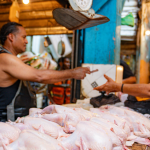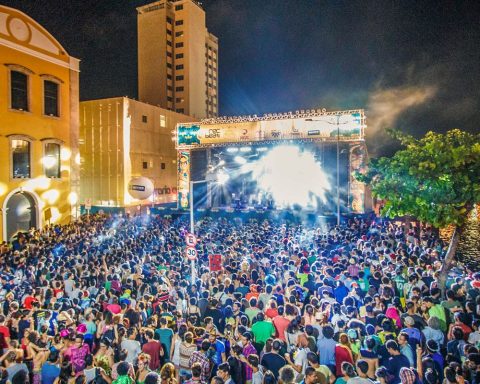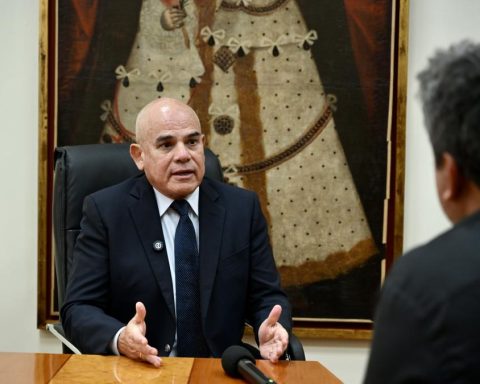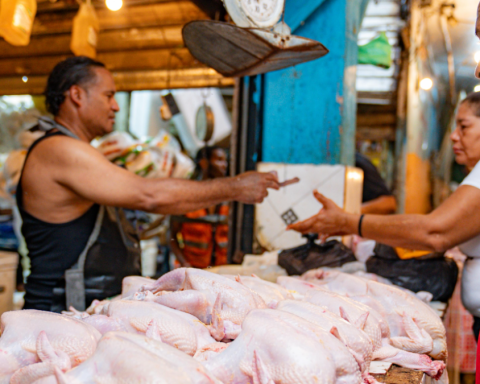Only one in three prisoners housed in the Uruguayan prison system carries out some type of work activity. An almost historical phenomenon, seen as one of the main factors that undermine the success of an eventual reintegration. But, “if everything goes well”, a project that will begin to be implemented as of January 1 promises to change that reality.
Two lawyers from the Ministry of the Interior are working on the legal setup and regulation of a dozen articles of the Accountability that will become effective in 2022 that proposes the creation of the Labor Dignity Plan for Persons Deprived of Liberty.
The project proposes directly job creation for people deprived of liberty, through the promotion of work in private ventures within the prison units themselves.
Thus, it establishes a series of conditions that will allow them to sell the products and services generated that they generate, through personal initiatives or integrated by up to five people, all in a situation of confinement.
This is how he explained it to The Observer the director of Coexistence and Citizen Security of the Ministry of the Interior, Santiago González, who recounted the high expectations that the portfolio has for a project that includes a central premise: that inmates can receive a salary for the work they do, which, in most cases, will be through a kind of self-management.
The project, González explained, targets a wide range of possible activities. The Ministry will facilitate the first steps, through the financing of the purchase of supplies and advertising, through an institutional website, of the goods and services that the prisoners intend to commercialize.
One of the novelties of the plan revolves around the possibility that inmates can contribute for this type of activity within the prison before the Social Security Bank (BPS), doing the “Unique Social Contribution PPL”, which will be equivalent to the usual contributions to social security. In this way, they will acquire all the rights corresponding to their inclusion and affiliation to the pension system.
This tax will be collected by the BPS, while the National Rehabilitation Institute ((INR) will have the role of withholding agent, in no case will it imply the existence of a dependency relationship between the workers and that body.
Nor will the Ministry of the Interior be, in any case, jointly and severally liable for eventual breaches or debts generated by the inmates in the commercialization of what is produced in their undertaking.
The project implies that taxpayers pay 25% of the expected tax during the first twelve months of the registered activity. The next twelve months will be done for 50% of the total, while the following year they will pay 75%. From then on, they must pay 100% tax.
The planned allocation will be the equivalent of 5 BFC (Contribution Ficha Bases), corresponding today to $ 6,459. The subjects included in the plan will not contribute to the National Health Fund, unless they choose to enter through the National Integrated Health System, in which case they must bear the corresponding cost.
The regulations, it is explained, will determine the way in which the proceeds from the sale of goods and services by the prisoners will be administered. Also the canon, which will be established by the prison authority.
Lor that it is clear is that 60% of that fee will be delivered to the worker for his personal expenses, including the continuation of the venture. The rest will be unavailable, except in cases where it is necessary for the purchase of supplies to continue developing the activity. The inmate will be able to access the total charge of that percentage once he is released.
Available balances must be deposited in a banking institution by the National Rehabilitation Institute. It should be in indexed units, and thus avoid the effects of currency devaluation.
The prison authority in turn may collect a maximum of 20% of the income generated by the worker, to thus compensate for the use of prison facilities for their undertaking.
The inclusion of a prisoner in the project does not exempt him, it is clarified, from performing the rest of the benefits for general tasks of the unit in which he resides, that will continue to be unpaid.
In turn, all those who decide to join the plan will be subject to the regime of coexistence and discipline in force within the prison. They may thus be subject to sanctions despite carrying out a work activity.
Participation in the plan may be suspended for a number of factors. Either, precisely, for disciplinary factors or for security reasons at the discretion of the prison authority.
Almost without remuneration
Information from the National Rehabilitation Institute (INR) indicated that in 2020, the last year with available data, 33.4% of those housed in the prison system carried out some type of work activity at least once a month.
December was the lowest month: coverage only reached 31.9% of the prison population. That is equivalent to just 4,165 people doing some kind of work. It also represents a decrease with respect to what was observed in 2019. That year, 36.4% had done so.
According to the latest report by the parliamentary commissioner, Juan Miguel Petit, lhalf of the activities correspond to non-specialized tasks, such as cleaning and maintenance of the units themselves.
17% are functions related to the production of food and care of green areas, 15% to kitchen tasks and only 14% correspond to trades, such as masonry, carpentry, blacksmithing or sanitary.
Only a small percentage corresponds to undertakings, projects and agreements linked to public or private institutions.
In 2020, 78% of work activities did not have any type of remuneration. In 14% there was money, for the most part fractioned. Only in 8% of the cases was a salary received for the activity.
In each center, very different realities are observed. If in Unit 9, destined for women with children, 69% of the inmates work, in the Libertas Prison only 10% do so.

















